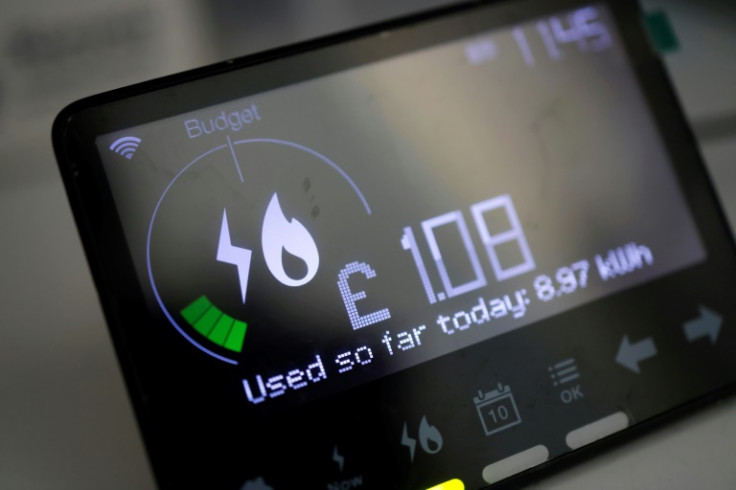Ofgem Proposes Energy Price Cap Adjustment to Tackle £3 Billion Debt Crisis
The proposed measure involves a one-time adjustment of £16, spread across the period from April 2024 to March 2025.

In a bid to alleviate the energy industry's staggering £3 billion debt accumulated from unpaid gas and electricity bills, the Office of Gas and Electricity Markets (Ofgem), the industry regulator, has unveiled plans to lift the energy price cap.
This unprecedented move aims to assist suppliers in recovering from the financial fallout of the energy-driven cost of living crisis that has adversely impacted household budgets across the UK.
Announced on Friday, Ofgem's proposal involves a one-off cap adjustment of £16, roughly equivalent to an additional £1.33 per month, to be implemented between April 2024 and March 2025. Notably, the regulator clarified that those utilising pre-payment meters would not be affected by this adjustment. The proposed sum of £16 is a revised figure, slightly lower than the initial suggestion of £17.
The £3 billion debt, described as a consequence of the energy-induced cost of living crisis, has raised concerns about the financial stability of energy suppliers. Ofgem emphasises the necessity of providing suppliers with adequate funding to adhere to the stringent regulations in place concerning the treatment of customers facing payment difficulties. The proposed adjustment to the price cap is framed as a measure to ensure suppliers have the necessary resources to support customers struggling with debt.
Ofgem's initiative is motivated by the desire to prevent a recurrence of the severe financial pressures that befell many suppliers, leading to the collapse of dozens, including the notable case of Bulb, amidst a spike in wholesale energy costs in 2021.
During that crisis, an average of £82 was added to each customer's bill as more robustly structured companies took on the responsibility of servicing households left stranded by collapsed suppliers.
While the price cap has witnessed a decline since the unprecedented bills of the previous winter, it not only reflects market prices but also incorporates mechanisms to enable firms to recover limited costs.
Ofgem's decision to allow firms to recover from deep losses, incurred through the purchase of additional wholesale energy to accommodate the influx of customers during the collapse of rival suppliers, has contributed to elevated profits for energy suppliers this year.
British Gas, the UK's largest supplier, reported record profits of £969 million for the first half of 2023, marking an almost 900 per cent increase from £98 million in the same period of 2022.
EDF, the French state-owned energy company, reported profits of nearly £2 billion for the first half of last year, including earnings from its nuclear power plants, up from £738 million in the corresponding months of 2022. Other major players, such as Scottish Power, E.On, and SSE, also reported substantial pre-tax profits, further highlighting the buoyancy of the sector.
In response to Ofgem's proposal, Simon Francis, coordinator of the End Fuel Poverty Coalition, criticised the regulator for burdening the majority with the costs of a failing system.
He argued that energy consumers should not bear the brunt of an "outrageous tax" while energy suppliers report billions in profits. Francis called for government intervention in the form of a help-to-repay scheme for homes in energy debt, lamenting the government's refusal to address the issue.
Tim Jarvis, Ofgem's director for markets, acknowledged the challenges faced by consumers due to the cost of living pressure and the record levels of energy debt. He highlighted Ofgem's efforts to ensure that energy firms treat customers struggling with debt fairly through robust consumer standards.
Jarvis stressed that the proposed adjustments are not taken lightly but are deemed necessary to address the pressing issue and enable suppliers to recover their reasonable costs, ensuring the resilience of the market.
While the price cap has played a crucial role in protecting consumers from the volatility of the gas market, Ofgem recognises its limitations as a "blunt instrument" in a dynamic and evolving energy sector. Jarvis hinted at the possibility of future changes to the price cap mechanism to better align with the changing landscape of the energy industry, ensuring ongoing consumer protection.
In addition to the proposed price cap adjustment, Ofgem has implemented measures to support those struggling to pay their energy bills this winter.
These measures, effective from Thursday, include rules governing the offer of debt repayment plans and holidays, providing additional relief to consumers facing financial challenges amid rising energy costs.
© Copyright IBTimes 2025. All rights reserved.


















